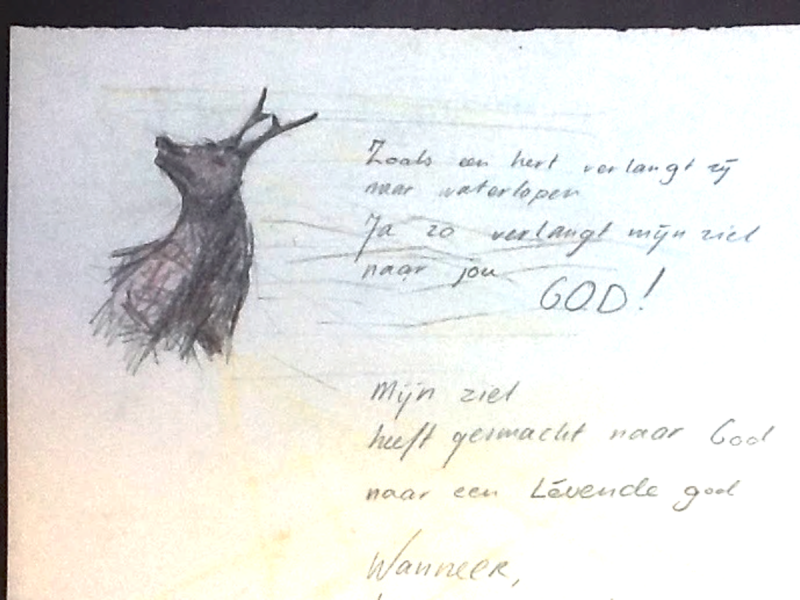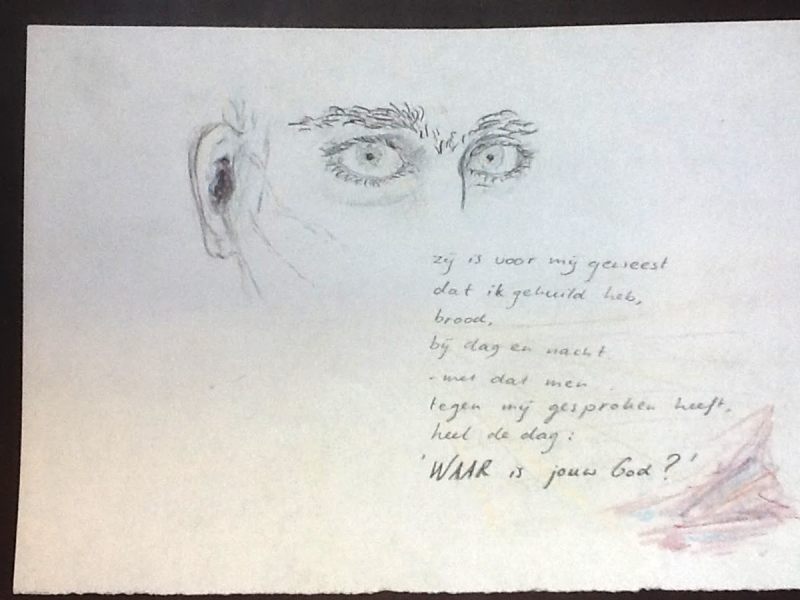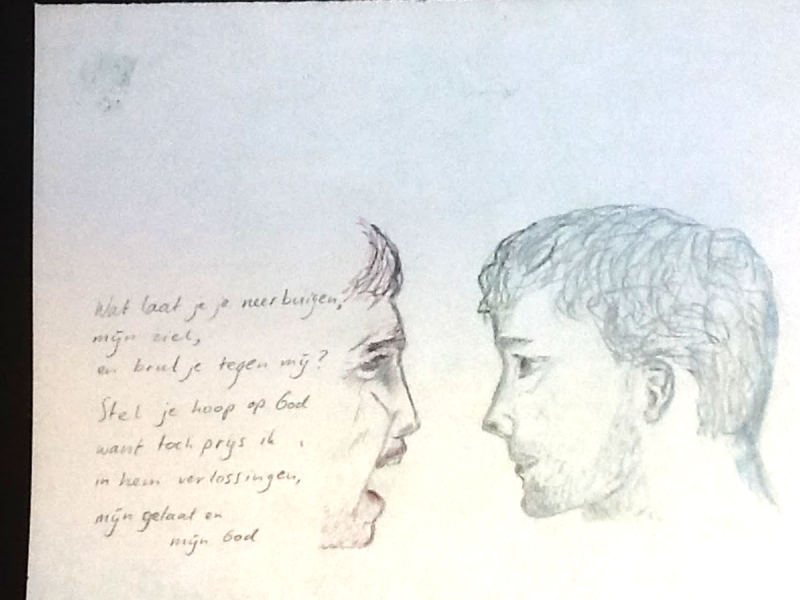5. The first night of the soul
Let's return to Psalm 42, written by the Korachites. It is written from someone whose soul is battered. Someone like Jeduthun, someone like their father Heman. Psalm 42 and 43 form a series of three cycles, each concluded with the same refrain: "What are you cast down, my soul." We start here with the first cycle.
Psalm 42:2-6

As a deer longs for streams of water,
so my soul longs for you, O God.
My soul thirsts for God,
a living God.
When shall I come
and see God's face?

My tears have been my bread
by day and night,
as they continually say to me:
“Where is your God?”

These let me remember,
and let me pour out my soul on me:
how I went with the throng,
and led them in procession to the house of God,
with glad shouts and songs of thanksgiving,
a multitude keeping festival.

What are you cast down, my soul
and what are you roaring against me?
Hope in God;
for yet I shall praise him,
my salvation and my God.
Reflections
When I was 17, I went to university to study industrial engineering because theology did not seem to be an option at the time. Fortunately, the student pastor offered a Biblical Hebrew class. Hebrew turned out to be a completely different language and script than the modern and classical languages I had studied in high school (grammar school). I loved to play with the verbal system and the vocalization. But, even more importantly, I got to work for months on a single text. I learned to translated the psalm in different ways, either to reflect sound, rhythm, meaning or the text's ambiguity. Meanwhile, I identified different sections and put these to music, with similar sections getting similar parts of the melody. I also made drawings for different sections, with different colors representing the body, the soul and the spirit. And because at this time in my life I was trying to figure our what my faith really meant to me, and how I could deal with my physical limitations, psalm 42/43 helped me to become brutally honest with myself and with God.
The opening image of the deer panting for water has made this psalm in church music. It reflects a yearning to experience God's presence. The psalm alternates between "I" and "my soul," and invites us to wonder whether these terms are interchangeable of not. As it turns out, I am my soul but I can also observe my soul. I have chosen the translation of "seeing God's face," rather than "appearing before God," as it is closer to the Hebrew and allowed me to play with nearly identical faces in my drawing: all colors intermingled (the second image), or the soul in purple red) and the I in blue (the fourth image).
As in psalm 77, the soul is distressed, overwhelmingly so. Again there is a deeper question: "where is your God?" For me, that had become an existential question: Is what I experienced in my teenage years, really God? My doubts were massive, but that went both ways: I also doubted atheist materialism. I needed to let go of presuppositions and learn to observe my soul, just as I had to learn to read, sing, and draw the psalm without preconceived notions of the soul. There is an "I" that reasons, but the soul is hard to reason with. The soul feels.
Again, like psalm 77, there is a therapeutic approach: the "I" wants to remember happier days in order to comfort the soul. It is the same joyous image that David describes in psalm 68:25-26:
Your procession is a spectacle, O God,
the procession of my God, my King, to his sanctuary:
singers in front, string players behind,
surrounded by girls with tambourines.
You can see how a worship leader like Jeduthun would have enjoyed this spectacle in which he had had a leading role. But now it comes: remembering this does not (yet) work for Jeduthun's soul! What I found so deeply realistic about this psalm, is that my pious attempts don't quiet the soul. She remains depressed and now even roars against me.
In psalm 131, I became the mother of my soul, as I was calming her. I was both the mother and the child. Here, in this image, I am both my soul and my reasoning self. And my soul is too strong and too overpowering for me to calm her down. She is like a teenager raging with puberty.
Add comment
Comments